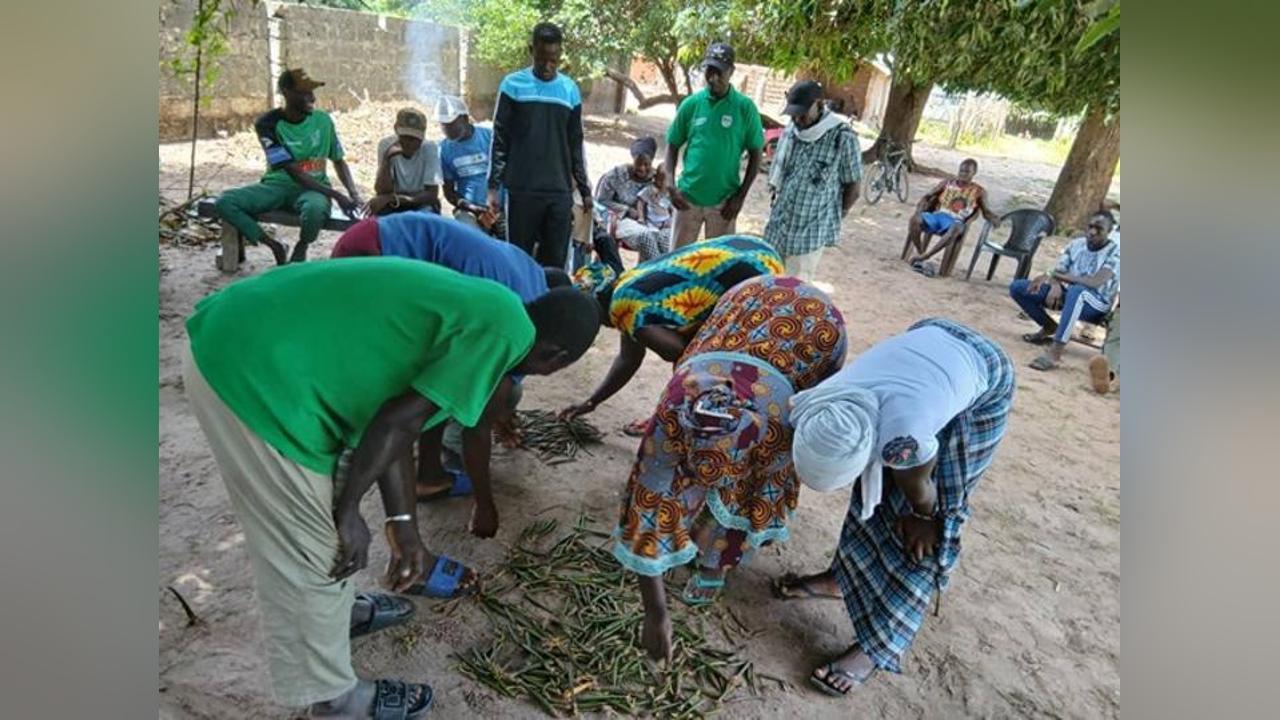Africa-Press – Gambia. A day-long training on the importance of mangroves and their restoration was held on Monday in Kasewa, Upper Nuimi, North Bank Region.
The training was organised by The Agency for the Development of Women and Children (ADWAC) with support from the Food and Agriculture Organization (FAO) under the Climate Resilient Fishery Initiative for Livelihood Improvement in The Gambia (PROREFISH).
The project targets communities in Kasewa, Sittanunku, and Nuimi Lamin, focusing on reforesting 150 hectares of degraded mangrove areas in key fisheries hotspots, with 77 hectares to be restored in the wetlands during the first phase.
ADWAC Executive Director, Mamsamba Joof, underscored the importance of raising public awareness on mangrove restoration to protect the ecosystem. He explained that the training sought to sensitize communities around mangrove reforestation sites on conservation and sustainable use of resources, while also mobilizing planting teams and setting up a reforestation work plan.
As part of the exercise, ADWAC and FAO handed over restoration toolkits to participating communities to prepare them for the community-led planting campaign. Joof urged the beneficiaries to take full ownership of the project, stressing that mangroves play a vital role in preventing salt intrusion on farmland and providing sanctuary for fish.
Mustapha Dumbuya, Livelihood Project Manager at ADWAC, and Sarjo Manneh of Nuimi National Park, who facilitated the training, said it aimed to strengthen local capacity on mangrove ecosystem services, ecological functions, restoration techniques, and economic benefits. They added that mangroves contribute to income generation, nutrition, and job creation for youth, while warning against indiscriminate cutting, which worsens salt intrusion.
Community leaders, including Alkalo Alieu Mendy and Village Development Committee Chairperson Amadou Sidibeh of Kasewa, thanked ADWAC and FAO for the initiative. They said the training had enlightened them on the ecological and food security importance of mangroves and pledged their commitment to protect and restore them. Sidibeh also appealed to the Ministry of Water Resources to provide the community with a borehole, noting that residents currently rely on open wells for drinking and domestic use.
Women leader, Therese Mendy, welcomed the mangrove restoration drive, saying it would enhance fish and oyster production, improve seafood processing, and support livelihoods. She appealed to the government and NGOs to provide the community with a milling machine to further empower women in seafood transformation.
For More News And Analysis About Gambia Follow Africa-Press






